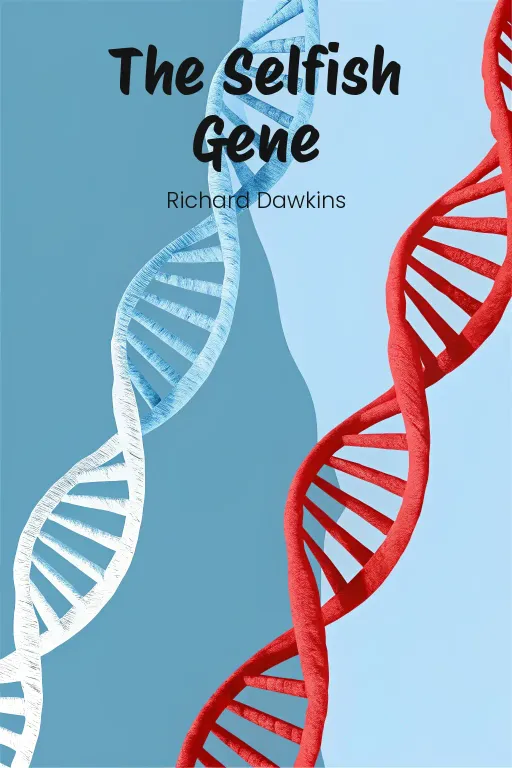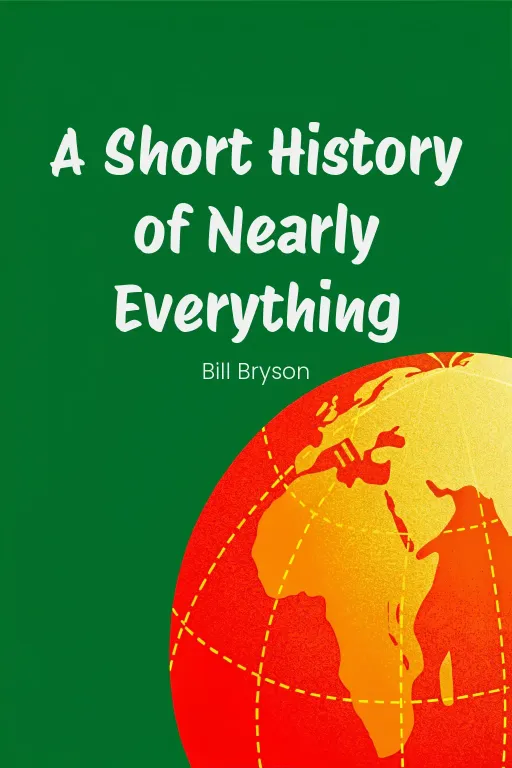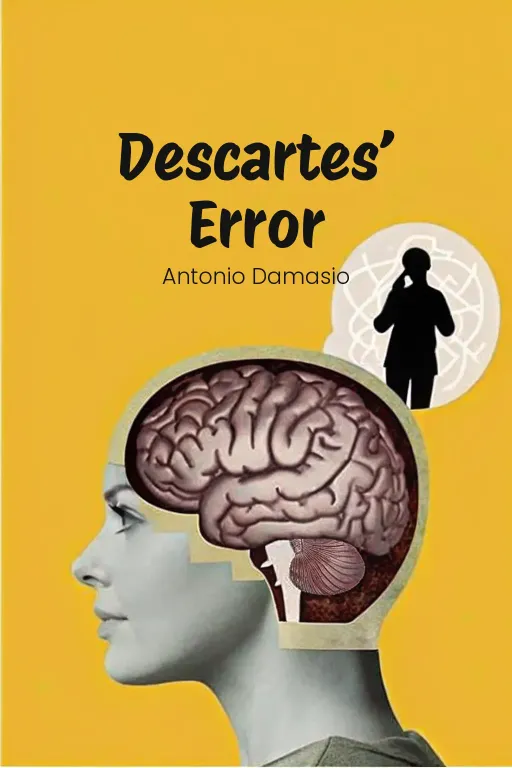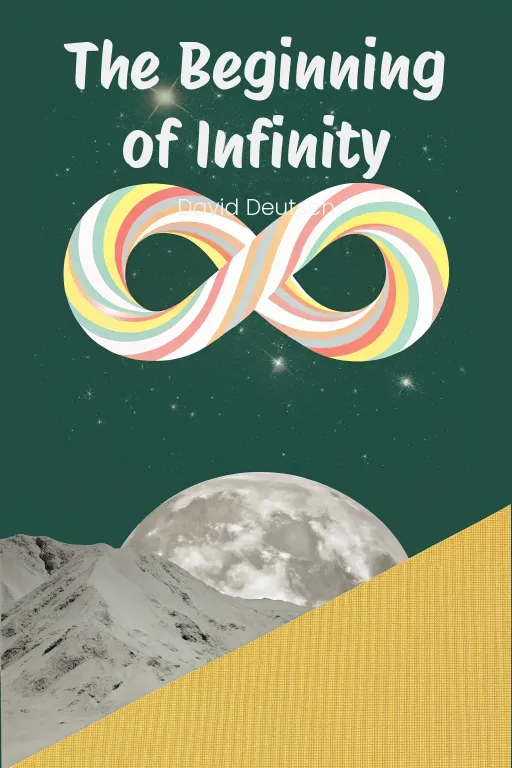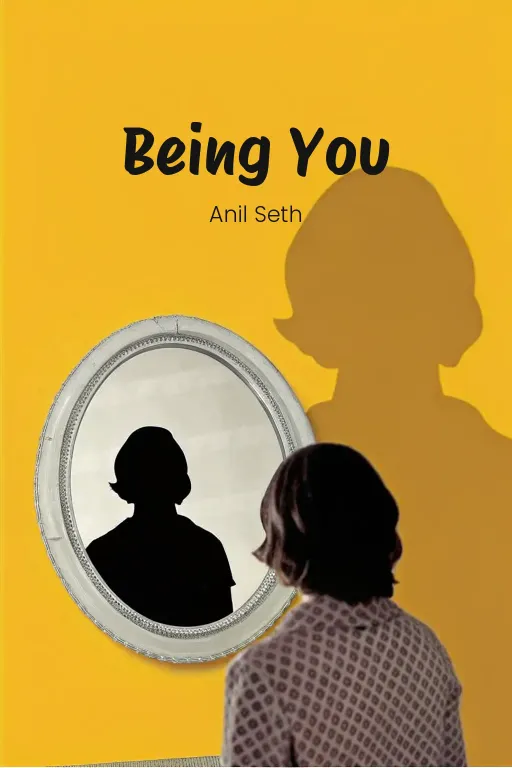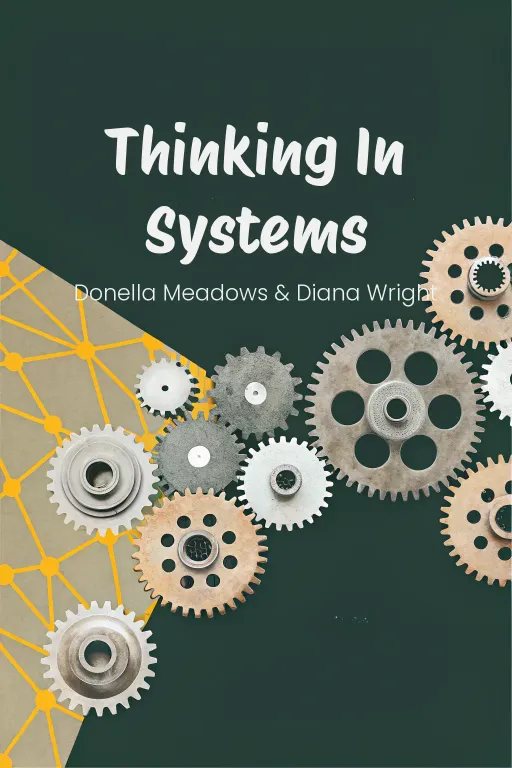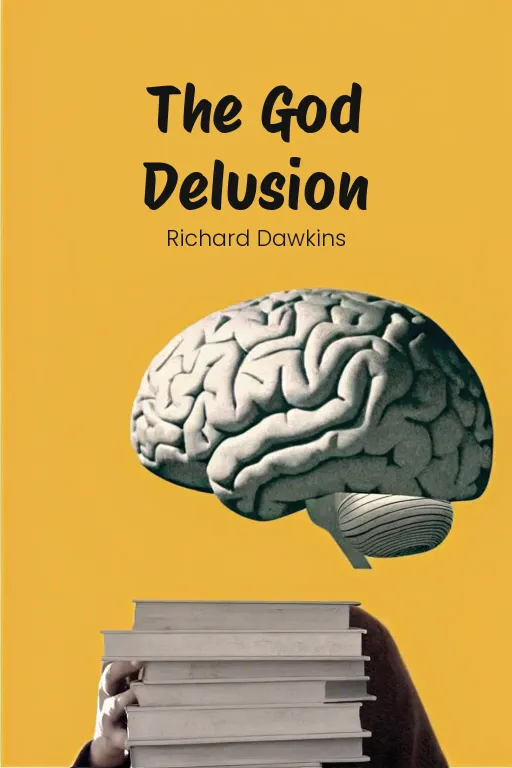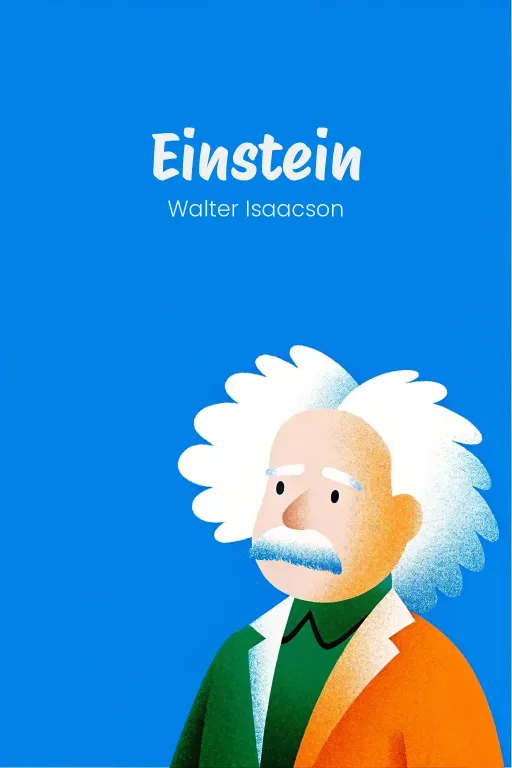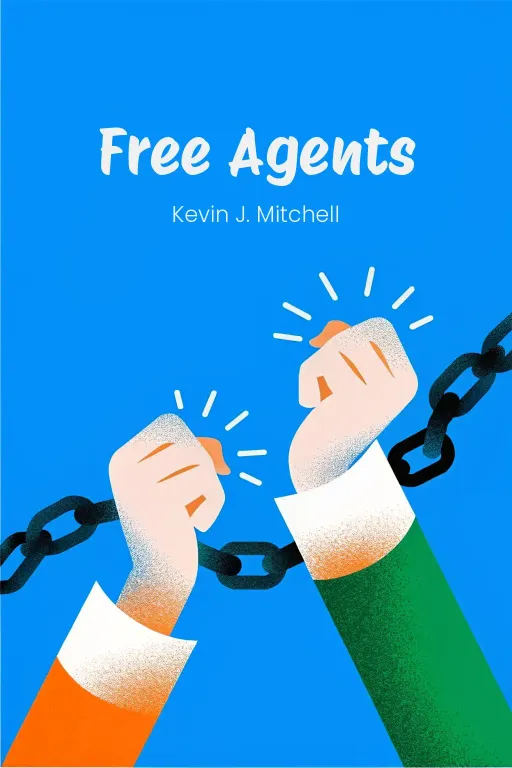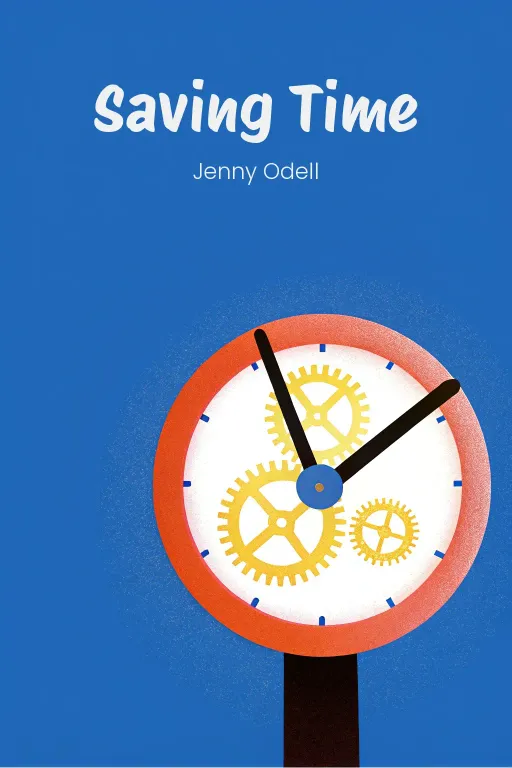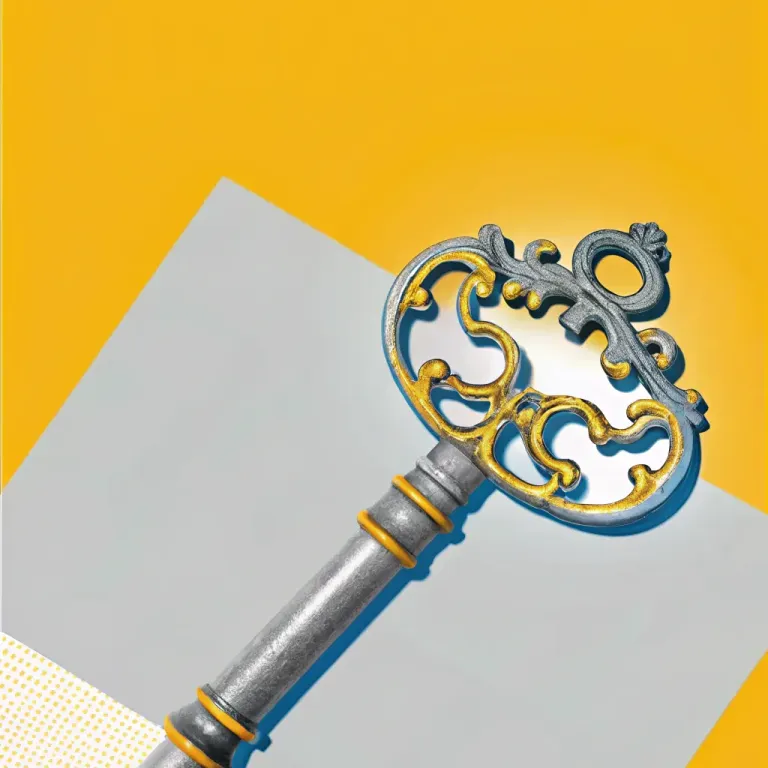
Unleash Limitless Progress: How?
Podcast by Wired In with Josh and Drew
Explanations That Transform the World
Introduction
Part 1
Josh: Hey everyone, welcome to the show! Today, we're tackling a huge topic: how do we humans keep pushing forward, solving problems, and constantly reinventing the world? Drew: Right, humans. The same species that invented the internet and reality TV. Go figure. Josh: Exactly! It’s a puzzle, but there's a method to our madness! According to David Deutsch in his book, “The Beginning of Infinity,” It’s not only about science or philosophy, but about what drives us as a species, that ability to create and explain is what makes infinite progress possible. Drew: Infinite progress, eh? That's a pretty big claim. What's the core idea? Josh: Well, Deutsch makes a fascinating distinction between what he calls “static societies” – the ones stuck in old ways and traditions – and “dynamic societies,” where questioning and improvement are the norm. He argues that the key to being dynamic is creating "good explanations." They help us solve problems, predict outcomes, and unlock our creativity. Drew: So, a static society is like, "We’ve always done it this way," while a dynamic one is like, "Hmm, what if we tried something totally different?" Josh: Precisely! And Deutsch takes it even further. He believes this creative energy is our superpower, allowing us to not just survive, but truly thrive and transform the world around us. Drew: Transform the world, huh? I imagine there are a few bumps along the way. Josh: Absolutely. Deutsch looks closely at the tension between moving forward and staying put, between sticking with what we know and trying new things. And today, we’re diving into three main ideas. Drew: Let me guess: First, the key ingredients for a good explanation? Josh: You got it! We’ll explore how good ideas can lead to scientific breakthroughs, while bad ones can hold us back for centuries. Drew: Okay, so Big Idea Two has got to be creativity, then – humanity’s secret weapon. Josh: Bingo! And finally, Big Idea Three: understanding why some societies flourish while others falter, based on their ability to embrace criticism and evolve. Together, these ideas show us how we grow and why the journey never really ends. Drew: Right, so we're breaking down explanations, boosting creativity, and figuring out if we're headed for endless progress or, you know, a dead end. Sounds like a “really” easy discussion at all. Josh: It's a serious discussion, for sure, but Deutsch's optimism is contagious. He truly believes that with the right approach, there are no limits to what we can achieve. Drew: A bold statement. Let's see if it stands up – or if we're trying to swallow more infinity than we can handle.
The Nature of Explanations
Part 2
Josh: Alright, let’s jump right into our first big idea: what makes a “good” explanation, and how powerful that can be. David Deutsch really emphasizes the difference between explanations that are what he calls “hard-to-vary” versus the ones that aren't. Drew: Hard-to-vary, huh? Interesting choice of words. So, would that be like the difference between a well-engineered suspension bridge and, I don’t know, a house of cards? Josh: <Laughs> Pretty much! A good explanation doesn’t just describe what we see; it actually builds a framework. You can’t just tweak it without the whole thing collapsing. Think about early astronomy. People saw twinkling stars, and… okay, they’re stars. But that doesn’t tell us why they twinkle, or what they are. Fast forward, and science tells us they're these enormous nuclear furnaces, light-years away, fusing elements. That's hard-to-vary. Take away the fusion, or change the scale, and the whole picture falls apart. Drew: Right, so early stargazers were basically just shrugging and saying, "Stars… that's it," and modern astronomy is like, "Those dots are literally manufacturing the universe." Got it. Josh: Exactly! And this applies everywhere, not just to stars. Think about alchemy. For centuries, people thought you could turn lead into gold, but their “explanations” were just based on mysticism. It wasn’t until we understood atomic structure that we realized transmutation is possible, but only through nuclear reactions. Drew: So instead of waving wands and chanting spells, they came up with atoms and particles. It's like replacing a bowl of mush with a Lego set that actually clicks together. Josh: That’s a great way to put it. What Deutsch really stresses is that humanity advances through this shift – from stories that feel right, to frameworks that actually work. And this leads us to the real magic trick: how do we go from simple observations to theories that explain the hidden mechanisms of the universe? Drew: Which, I'm guessing, leads us nicely into Big Idea Number Two: Creativity? Josh: Spot on! Creativity is the engine that drives the search for these good explanations. It's not just about compiling data; it’s about making bold guesses, imagining ideas nobody’s ever considered before. Like Einstein, for example. Drew: Knew we'd be talking about Einstein eventually. Josh: <Laughs> Well, of course! His theory of relativity is one of the most incredible leaps in human thought. Before Einstein, Newtonian physics was king. It described a predictable universe governed by absolute time and space. It mostly worked, but there were things it couldn't explain. Then Einstein comes along and says, "What if space and time aren't fixed? What if they bend with gravity and energy?" Drew: That’s… a pretty big “what if.” It's like finding out the ground you're standing on is actually a trampoline. Josh: Exactly! And the crucial thing is, his idea wasn’t just a fantasy; it was testable. He predicted that light would bend near massive objects, and that was confirmed during a solar eclipse in 1919. Suddenly, this abstract, creative idea about the nature of the universe became a hard-to-vary explanation. Drew: So creativity isn’t just daydreaming. It’s about taking a crazy thought, giving it structure, and then letting reality decide if it lives or dies. So, it needs to be verified by reality. Josh: Absolutely. And while societies that are too rigid may stifle new ideas, dynamic societies flourish because they allow creativity to run wild. Because that freedom lets us challenge old ideas, improve our frameworks, and break through those barriers that once seemed impossible. Drew: Okay, I'm sold on creativity. But what happens when societies don't encourage this? What if criticism isn’t allowed, and progress is, I don’t know… shackled by bad explanations or power? Josh: That’s why our third idea – the philosophical implications – is so important. Deutsch argues that good explanations can only thrive in cultures that value intellectual freedom. Think about Karl Popper’s philosophy of science. Popper believed that knowledge isn’t about passively collecting facts; it’s about actively building ideas and then rigorously testing them through criticism. Drew: So, progress isn’t like picking apples from a tree. It's more like being a tinkerer in a garage, building and breaking things until they finally work. Josh: Exactly. But throughout history, societies have often resisted this process. Think about periods dominated by rigid beliefs – religious, political, whatever – where questioning or dissent was seen as dangerous. Those periods stifled creativity, locking people into bad explanations. Drew: Whereas societies like those during the Enlightenment were like, "Hey, maybe we shouldn't throw Galileo in jail for looking at Jupiter," right? Josh: Exactly! The Enlightenment embraced debate, skepticism, and constant improvement! This openness wasn’t just philosophical; it led to major progress in science, government, and human rights. By allowing explanations to be challenged and refined, it paved the way for real, transformative progress. Drew: So, we’re really talking about creating a society where no idea is too sacred to be questioned. Josh: Precisely. It’s that resilience in the face of criticism, that openness to innovation, that Deutsch sees as key to humanity’s infinite potential. Good explanations don’t just solve problems; they expand our horizons. They remind us that progress isn't a destination, but an endless journey into an ever-expanding universe of knowledge. Drew: So every time we solve a mystery, we’re basically opening the door to ten more questions? Josh: You got it! And that endless curiosity, that willingness to explore, critique, and rebuild… that’s the beginning of infinity.
Creativity as Humanity's Defining Trait
Part 3
Josh: So, shifting gears from what we see to what we understand, let's explore how human creativity bridges that gap between perception and scientific truth. We're diving into Big Idea Two: creativity as humanity's defining trait. We'll see how it evolves across systems like mathematics, tackles problem-solving, and ultimately drives cultural progress. Drew: Okay, creativity – our so-called superpower. But really, why is it the defining trait? I mean, can't animals innovate too? Crows use tools, right? Are we just patting ourselves on the back here? Josh: True, animals adapt and use tools. But their innovation serves specific needs, and their behavior is tied to their environment. Human creativity transforms environments. Look at mathematics, for example. Drew: Math? Seriously? I wish someone had told me that in high school algebra. Maybe I would have tried harder to understand it. Josh: Mathematics is a great example of evolving creativity. Early cultures used simple tallies, which were functional. Then, the invention of positional numeral systems, including zero in Indian mathematics, came about around the 5th century. Now, that wasn't just technical. It required imagination, to visualize "nothing" as a building block to build upon everything. This changed everything, from basic calculations to engineering and astronomy. Drew: Suddenly, you didn't need a pile of rocks to count sheep. Shorthand for infinity, if you will. That's quite the shortcut. Josh: Exactly. It’s not just about efficiency. Numbers evolved from practical tools into abstract concepts that could describe invisible phenomena like gravity or even the curvature of space-time. Creativity not only solved problems but broadened the range of possible problems. Drew: Okay, fair enough. But let's talk about tangible stuff. How does creativity work when facing real-world challenges, not just abstract equations? Josh: Perfect timing. Let's talk about the steam engine. It is a prime example of creativity reshaping both solutions and broader systems of life, right? Drew: Ah, yes, the steam engine. Humanity’s one-way ticket to the Industrial Revolution and, let’s be honest, some serious air pollution. Josh: True, but Deutsch would argue it was a turning point where human ingenuity went beyond environmental limits. Before the steam engine, society relied on human or animal labor, which capped productivity. James Watt improved the traditional engine with a separate condenser, minimizing inefficiencies. Suddenly, we had faster transport, mass production, and improved agriculture. Drew: And pollution, crowded cities, and people chained to machines. Revolutionary, sure, but there's always a cost. Josh: A valid point, and Deutsch acknowledges that progress can be messy. This is where problem-solving comes in. Every innovation brings fresh challenges—like pollution—but equips us with new tools to tackle them. Look at renewable energy reshaping industrial structures today. Humanity is unique because our creativity allows self-correction. We don't just solve the immediate problem. We create smarter, wider solutions. Drew: So, creativity doesn’t just break down walls, it uses the rubble to build the next level. Josh: Precisely. And it’s not just about physical stuff. It has transformed cultures. Look at the move from hunter-gatherer to farming. It needed a complete creative rethink of human interaction with the environment — and each other. Drew: I see where you’re going with this. Pre-agriculture, it was all about immediate survival. Farming changed everything. Suddenly, humans could think past the next meal. Josh: Exactly. Agriculture wasn’t just food. It was a catalyst for new ways of organizing society. Irrigation allowed settlements where none could have survived. Surpluses freed people to become merchants, artists, or scholars. Writing and centralized governance? Both invented to manage increasingly complex agrarian networks. Drew: Of course, wars and territorial disputes were also part of the mix. Josh: Sure, history gets messy, but the core idea is that, through creativity, humans kept reimagining possibilities. Agrarian societies didn’t just solve scarcity—they invented art, thought, and governance. As those systems hit limits, creativity sparked further evolution—industrialization, digital transformation, and now, global knowledge-sharing. Drew: Which brings us to the cutting edge - the tech explosion, right? Josh: Right. Think about computational systems. Initially designed to automate basic tasks, computing transformed problem-solving across fields. Climate modeling uses computers to simulate atmospheric dynamics, revolutionizing environmental science. And medicine? Algorithms are designing prosthetics that adapt to individual needs and are even identifying cancer risks. Drew: And, of course, AI can write poetry. I guess that's solving a crucial problem for today's poets, uh? Josh: Or creating new ones! Seriously, AI highlights a feedback loop: Powerful creative tools enhance human capabilities, which leads to more creativity. That’s what Deutsch means. Creativity isn’t limited by resources or knowledge. It generates exponential growth by expanding those boundaries. Drew: So, from basic tallies to algorithms, we ride the creativity rocket. But if creativity is infinite fuel, can it run off the rails? Josh: That’s where culture plays a role. For creativity to thrive, societies need to embrace questioning, debate, and openness. History demonstrates progress stalls when criticism is stifled - for example, during oppressive times. When ideas become sacred, they become static, and potential fades. Drew: So, progress isn't just about being smart. It's about creating a culture that encourages failure, debate, and reinvention. Josh: Exactly. Deutsch’s optimism is rooted in this: As long as we nurture creativity and keep refining our explanations, there’s no limit to what we can achieve. From reshaping the material world to better understanding the cosmos, creativity is an endless journey.
Static vs. Dynamic Societies
Part 4
Josh: So, from the “why” of explanations, let’s talk about “how” creativity drives progress, tech breakthroughs, and just makes society better. That brings us to static versus dynamic societies. It’s a crucial distinction because it shows us what cultural and intellectual stuff either helps or hurts progress. Here’s the plan: first, we define static and dynamic societies, then break down what makes them tick, and finally, see how societies shift from static to dynamic, with the Enlightenment as the big example. Drew: Okay, so static societies are all about, “We’ve always done it this way,” while dynamic societies are like, “Let’s shake things up.” Sounds simple, but I’m guessing there's more to unpack here. Josh: Definitely. Static societies are, first off, super resistant to change. They’re all about tradition to keep things in order, which… you know, can work for a while. But eventually, it doesn't. Take Easter Island—it’s a classic example of what happens when you’re too rigid. Drew: Ah, Easter Island. With those giant stone heads that look perpetually disappointed in humanity. What's the story there? Josh: So, the island was actually lush when Polynesians first showed up over a thousand years ago. But as the population grew, they got obsessed with building moai, those stone statues. It took tons of wood, stone, and manpower. The problem? It was at the expense of everything else, like, you know, keeping their ecosystem alive. They chopped down all the trees to move the statues, leading to massive deforestation. No trees meant no boats for fishing, no way to do agriculture. And the island basically collapsed. Drew: So, they chose giant monuments over survival. Talk about a bad trade. Josh: Exactly. And the thing is, there were warning signs. But instead of changing course, they doubled down. That’s what happens in static societies: tradition wins over adapting to new challenges. They couldn't—or wouldn’t—innovate, and that sealed their fate. Drew: So, the lesson is: maybe don't invest everything in oversized lawn ornaments. Got it. Josh: Pretty much. The bigger point is that static societies over-invest in stuff that becomes unsustainable. They’re resistant to criticism, so they miss chances to adapt. Drew: Okay, so static societies are like that old, glitchy software—outdated, slow, and crashes all the time. What's the alternative? Josh: Dynamic societies. They thrive on being adaptable and open to criticism. Instead of prioritizing stability no matter what, they embrace change, find new solutions when the old ones stop working, and see creativity as key to growth. And if there's one thing that really sets dynamic cultures apart, it's how much they value critical thinking and education. Drew: Education as in history class and algebra? Or like, the kind of education that makes people question everything? Josh: A bit of both. Dynamic societies build education systems that teach people not just to memorize stuff, but to question it, innovate, and solve problems. Think about the Enlightenment—perfect example. People started moving away from super rigid, hierarchical systems where religious authorities controlled education. Instead, they celebrated reason, observation, and intellectual freedom. Drew: Let me guess, that’s when we got scientific rockstars like Newton figuring out modern physics? Josh: <Laughs> Exactly! Newton, Galileo, tons of others completely changed how we see the world. Take Galileo. He used telescopes to challenge beliefs about the universe, like how everything revolved around the Earth. Questioning everything with evidence transformed science and completely changed how society saw knowledge itself. Drew: And it wasn't just science, right? The Enlightenment shook up politics, philosophy, everything. Josh: Absolutely. Thinkers like John Locke questioned the whole "divine right of kings" thing and pushed for democracy. Dynamic societies don't just keep knowledge around, they create places where ideas can be debated, challenged, and rebuilt to be even stronger. It’s what makes them resilient. Drew: Okay, I get it when everyone's on board. But what happens when you go from static to dynamic, and there's resistance? Challenging tradition sounds good until the people in charge push back. Josh: Resistance is always gonna happen, and transitions aren’t smooth. The Enlightenment didn't happen overnight. Lots of Enlightenment thinkers were censored or even persecuted for what they thought. Galileo spent his last years under house arrest. But the shift happened because enough people started questioning things, and eventually, the push for change was unstoppable. Drew: So, it's not like flipping a switch. It's more like tearing down a wall, brick by brick, with people fighting you the whole way. Josh: Exactly. And once you hit that point, progress takes off. The Enlightenment sparked revolutions in science, government, and education that still shape modern dynamic societies. Take fallibilism, the idea that no knowledge is beyond criticism. It came about during this time, and it's key to what Deutsch is talking about. It means that even our best ideas can and should be improved. Drew: I like that. It's like saying, "Yeah, this works for now, but let's always be open to making it better." Josh: That's what dynamic societies are all about. Instead of being afraid of mistakes, they learn from them. Instead of clinging to old ideas, they evolve. That mindset helps them deal with not just today’s problems, but tomorrow's too. Drew: Alright, so static societies are warnings, dynamic societies are the goal, and the change between them is where it gets interesting. What’s the main point here? Josh: That societies—and individuals—need to embrace the discomfort that comes with change. Progress isn't a straight line; it's a constant thing of questioning, messing up, and improving. Static societies fall apart because they're too rigid, but dynamic societies thrive because they see every problem as a chance to innovate. Drew: So the key to progress is staying curious, questioning everything, and never settling for “good enough.” Josh: Exactly. Dynamic societies don't just react to the world—they reinvent it, over and over. And that reinvention is how we move towards infinite possibilities.
Conclusion
Part 5
Josh: Okay, so to recap, we've unpacked three major concepts from “The Beginning of Infinity”. First off, it's the power of good explanations - those robust, hard-to-vary ideas that fuel innovation and progress by uncovering the hidden realities of our world. Drew: Right, and then we dove into creativity, seeing it as humanity's real superpower. It's not just about adapting to problems, but about shattering limitations and reimagining what's possible. Josh: Exactly! And lastly, we looked into the distinction between static and dynamic societies. Static cultures, they kind of hold onto tradition and resist change, while dynamic ones embrace criticism, creativity, and that constant reinvention, which creates a cycle of endless progress. Drew: Which “really” boils down to this: progress isn't just some lucky break. It's a conscious decision to think critically, question the status quo, and, you know, stay curious, even when it's uncomfortable. Josh: Definitely. Deutsch's message is super optimistic. Problems aren't roadblocks. They're opportunities! The more we question, the more we discover, and the more solutions we come up with. Drew: So, the takeaway is pretty straightforward: whether we're talking about huge societal shifts or just rethinking your morning caffeine fix, adopt the mindset of a dynamic society - stay open, stay creative, and always be on the hunt for better explanations. Josh: Absolutely, because when we approach things the right way, there “really” are no limits to what we can achieve. Drew: No limits... except maybe for pineapple pizza. Josh: And with that, thanks for tuning in! Keep questioning, keep imagining, and we'll catch you next time.
